The Role of Quantum Sensors in Enhancing Smart Gadgets
8 February 2025
In the ever-evolving world of technology, it feels like we're witnessing a new breakthrough every other day. One such cutting-edge development that’s been making waves lately is quantum sensors. Now, if you’re not a physicist, the term "quantum" might sound a bit intimidating, but don’t worry—I’m going to break it down for you in the simplest way possible!
Imagine a world where your smart gadgets, like your smartphone, smartwatch, or even your smart home devices, could be thousands of times more accurate, responsive, and efficient. Quantum sensors are the key to making that happen. So, how do they work, and how are they set to change the landscape of smart gadgets? Let’s dive into it!
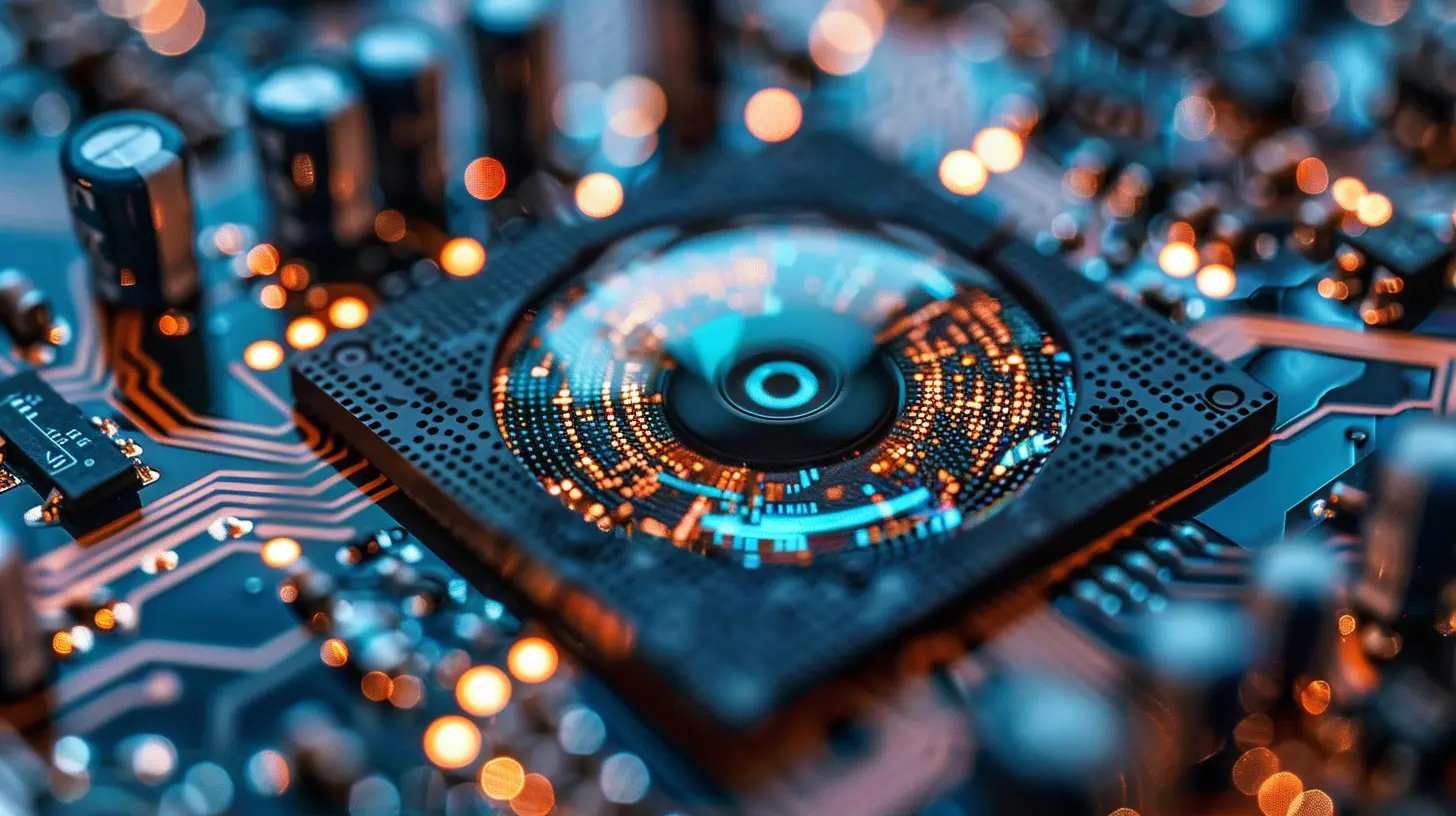
What are Quantum Sensors?
Before we get into their role in enhancing smart gadgets, let’s start by breaking down what quantum sensors actually are.In basic terms, quantum sensors are devices that detect and measure physical quantities—like temperature, pressure, magnetic fields, or even time—using the principles of quantum mechanics. Quantum mechanics, if you're not familiar, is the branch of physics that deals with the behavior of particles at the smallest scales, like atoms and subatomic particles.
What makes quantum sensors special is their ability to measure these quantities with extreme precision. Much like a superpower, they can detect things that traditional sensors simply can’t, thanks to their sensitivity to even the tiniest changes in their surroundings. Think of them as the Sherlock Holmes of sensors—nothing escapes their notice!
How Do Quantum Sensors Work?
Alright, let’s get a little technical here (but not too much, I promise). Quantum sensors take advantage of the peculiar properties of quantum particles, like superposition and entanglement.- Superposition is when a quantum particle, like an electron, can exist in multiple states at once. Imagine flipping a coin, and while it’s in the air, it’s both heads and tails at the same time.
- Entanglement is when two particles are connected in such a way that the state of one instantly affects the state of the other, no matter how far apart they are. It’s like having two synchronized clocks on opposite sides of the planet.
Quantum sensors use these mind-bending properties to measure things with unbelievable accuracy. Traditional sensors, which rely on classical physics, just can’t compete in terms of precision. Quantum sensors are like having a microscope that can zoom in on the tiniest atom and still see it clearly.

The Role of Quantum Sensors in Smart Gadgets
Now, let’s connect the dots: How do these super-sensitive Sherlock Holmes-like sensors fit into the world of smart gadgets?1. Enhanced Accuracy in Navigation and Location Tracking
One of the most exciting applications of quantum sensors is in navigation systems. We already rely heavily on GPS for everything from finding the nearest café to navigating cross-country road trips. But GPS isn’t perfect. It can lose signal in crowded urban areas, underground, or in dense forests. Ever tried using Google Maps in a tunnel? Yeah, it’s not pretty.Enter quantum sensors. These sensors can dramatically improve the accuracy of location tracking, even in challenging environments. They are so sensitive to changes in magnetic fields and gravitational forces that they could help you navigate with pinpoint accuracy, even when traditional GPS fails.
Imagine walking through a labyrinth of underground subway stations with your phone still giving you exact directions. Or driving through a dense forest with no signal, yet your smartwatch still knows exactly where you are. Quantum sensors could make that possible.
2. Revolutionizing Health Monitoring
Wearable tech, like smartwatches and fitness bands, has already made great strides in health monitoring. But what if I told you that quantum sensors could take it to a whole new level?Quantum sensors are capable of detecting the smallest changes in biological signals, which could open the door to more accurate health tracking. For example, they could monitor your heart rate, blood pressure, and even brain activity with greater precision than ever before. Quantum sensors could essentially act like a personal doctor that follows you around all day, giving you real-time data about your body’s health.
This could be a game-changer for people with chronic conditions like diabetes, heart disease, or epilepsy. Imagine a smartwatch that can predict the onset of a seizure or a heart attack before you even feel anything unusual. That’s the kind of future quantum sensors can help create.
3. Smarter Environmental Sensing for Smart Homes
Ever wished your smart home devices could respond better to their environment? Well, quantum sensors might just be the upgrade we’ve been waiting for. Current smart thermostats, lights, and security systems rely on classical sensors that can only detect broad changes in temperature, light, or motion.Quantum sensors, on the other hand, can detect minute changes in the environment. For example, a quantum-enabled smart thermostat could detect even the smallest fluctuations in temperature or humidity, adjusting your home’s climate with unparalleled precision.
Or imagine a security system that uses quantum sensors to detect changes in the magnetic field around your home. If someone tries to tamper with your door or window, the sensor would pick it up instantly, even if the intruder makes no noise at all. In short, quantum sensors could make your smart home even smarter, offering a level of responsiveness that traditional sensors just can’t match.
4. Improvements in Augmented Reality (AR) and Virtual Reality (VR)
Another exciting area where quantum sensors could make a big impact is in AR and VR technology. One of the challenges with current AR and VR systems is accurately detecting and responding to the user’s movements and surroundings.Quantum sensors could offer ultra-precise motion tracking, making AR and VR experiences far more immersive and realistic. Imagine playing a VR game where the system can track your movements down to the millimeter, or using AR glasses that can instantly and accurately overlay information onto your surroundings without any lag.
With quantum sensors, the boundary between the virtual and real world could become even blurrier, creating new possibilities for gaming, education, and even remote work.
5. Boosting Battery Life and Energy Efficiency
Smart gadgets are notorious for their battery consumption. Whether it’s your smartphone, smartwatch, or wireless earbuds, they always seem to run out of juice just when you need them most. Quantum sensors have the potential to help fix that.Quantum sensors are incredibly energy-efficient, meaning they can operate using far less power than traditional sensors. This could translate to significant improvements in battery life for smart gadgets. Imagine your smartwatch lasting for weeks on a single charge, or your smartphone staying powered up for days without needing to be plugged in.
But it’s not just about battery life. Quantum sensors could also help optimize the energy usage of smart gadgets, ensuring they only consume power when absolutely necessary. This could lead to smarter devices that are not only more accurate but also greener and more energy-efficient.

Challenges and Future Outlook
Of course, like any new technology, quantum sensors aren’t without their challenges. For one, they are still largely in the experimental phase, and developing them for widespread consumer use is no small feat. Quantum mechanics is a notoriously tricky field, and making quantum sensors small, affordable, and durable enough for everyday gadgets is going to take some time.However, the potential is undeniable, and researchers are making significant progress. In the near future, we could start seeing quantum sensors integrated into more and more smart devices, from smartphones to wearables to home automation systems.
The ultimate goal? To create a world where our smart gadgets are not just tools, but extensions of ourselves—devices that understand our needs, adapt to our environment, and offer us insights with unparalleled accuracy.
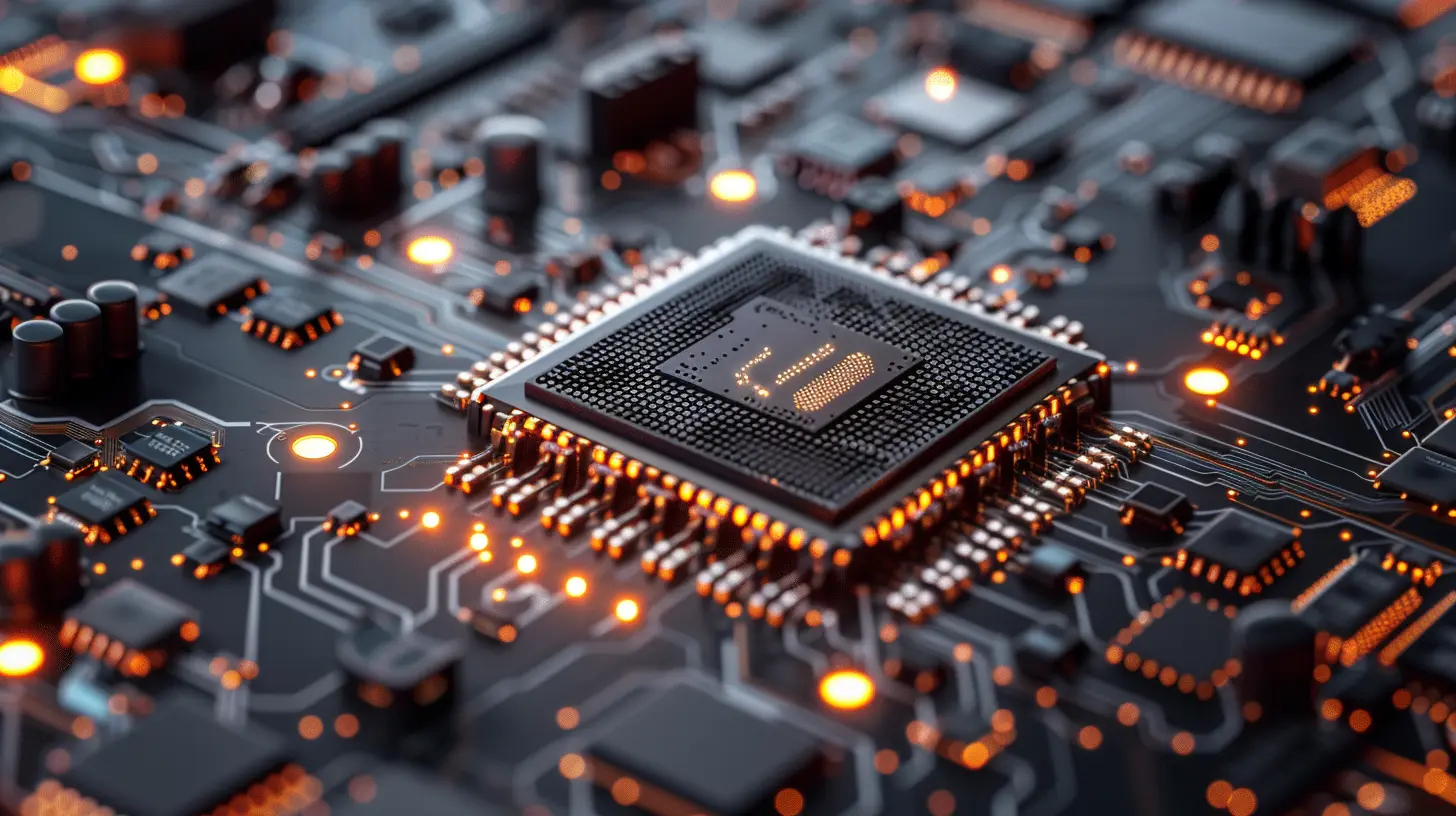
Conclusion
Quantum sensors are poised to revolutionize the world of smart gadgets. From enhancing navigation and location tracking to improving health monitoring, environmental sensing, AR/VR experiences, and even battery life, these tiny sensors have the potential to make our gadgets smarter, more precise, and more efficient than ever before.While the technology is still in its early stages, the future looks incredibly promising. Before we know it, quantum sensors could be as common in our everyday devices as GPS or Wi-Fi. And when that happens, our gadgets will be able to do things we never even thought possible.
So, what do you think? Ready for a future where your smartwatch can predict a heart attack or your VR headset can track your every move with millimeter precision? I know I am!
all images in this post were generated using AI tools
Category:
Technology InnovationAuthor:

Adeline Taylor
Discussion
rate this article
17 comments
Zevros Simon
Quantum sensors are revolutionizing smart gadgets, unlocking unprecedented levels of precision and efficiency. Embrace this technological leap—it's not just innovation; it's the dawn of a smarter, more connected future!
March 12, 2025 at 5:30 AM

Adeline Taylor
Thank you for your enthusiastic comment! I agree—quantum sensors are indeed transforming smart gadgets, paving the way for a more precise and interconnected future.
Chase Bennett
Great article! The potential of quantum sensors to revolutionize smart gadgets is truly exciting. I'm eager to see how this technology will shape our daily lives in the future.
February 25, 2025 at 4:13 AM

Adeline Taylor
Thank you! I'm glad you found it exciting; the future of quantum sensors in smart gadgets is indeed full of potential!
Karson Mercado
Quantum sensors: because regular sensors just weren't cutting it! Imagine your smart fridge not only knowing you’re out of milk but predicting your midnight snack cravings! With quantum tech, we might soon need a sensor to help us find our other socks. Who knew science could be so cheeky?
February 24, 2025 at 9:07 PM

Adeline Taylor
Thanks for the playful comment! Quantum sensors do have the potential to revolutionize smart gadgets, offering unprecedented levels of accuracy and predictive capabilities. Who knows what clever applications we'll see next!
Kenzie Parker
Quantum sensors could redefine precision in everyday smart devices.
February 22, 2025 at 6:00 AM

Adeline Taylor
Absolutely! Quantum sensors have the potential to significantly enhance the accuracy and functionality of smart devices, paving the way for more advanced and precise applications in everyday technology.
Owyn McVicar
Quantum sensors could revolutionize smart gadgets, enabling unprecedented accuracy and functionality. Exciting times ahead!
February 21, 2025 at 8:12 PM

Adeline Taylor
Absolutely! Quantum sensors promise to dramatically improve the precision and capabilities of smart gadgets, marking an exciting leap forward in technology.
Cambria Cooper
Quantum sensors represent a pivotal advancement in smart technology, promising unprecedented levels of precision and sensitivity. However, the challenge lies in their integration into everyday devices without compromising accessibility and affordability.
February 21, 2025 at 5:35 AM

Adeline Taylor
Thank you for highlighting the potential and challenges of quantum sensors! Striking a balance between precision and accessibility will be key to their successful integration into everyday technology.
Logan McLaurin
Great article! It’s fascinating how quantum sensors can revolutionize smart gadgets by improving accuracy and efficiency. I’d love to see more examples of their real-world applications, especially in healthcare and environmental monitoring. Keep up the informative work; it’s an exciting field!
February 19, 2025 at 5:56 AM

Adeline Taylor
Thank you for your kind words! I appreciate your interest in real-world applications, and I’ll definitely explore more examples in healthcare and environmental monitoring in future articles. Stay tuned!
Ivory McLean
Exciting times ahead! Quantum sensors are set to revolutionize smart gadgets, unlocking unprecedented precision and capabilities. Embrace the future—a world of innovation and endless possibilities awaits us!
February 18, 2025 at 7:48 PM

Adeline Taylor
Absolutely! Quantum sensors indeed hold immense potential to elevate smart gadgets, driving innovation and precision to new heights. Exciting times lie ahead!
Yasmine Castillo
Exciting times ahead! Quantum sensors are set to supercharge our smart gadgets, making them faster and smarter than ever. Let’s innovate!
February 18, 2025 at 3:59 AM

Adeline Taylor
Absolutely! Quantum sensors hold immense potential to revolutionize smart technology, driving unprecedented advancements in speed and intelligence. Exciting innovations await!
Monique Horne
Who knew quantum sensors could make our smart gadgets even smarter? It’s like giving them a superhero cape! Can’t wait to see my toaster start predicting breakfast preferences! 🥑✨
February 17, 2025 at 4:05 AM

Adeline Taylor
Absolutely! Quantum sensors are indeed revolutionizing smart gadgets, making them more intuitive and responsive. Who knows what breakfast surprises your toaster might have in store! 🥑✨
Fletcher Pope
Exciting times ahead! Quantum sensors are set to supercharge our smart gadgets. Let’s explore!
February 16, 2025 at 4:49 AM

Adeline Taylor
Absolutely! Quantum sensors hold immense potential to elevate the performance and capabilities of smart gadgets, paving the way for more innovative applications. Let's dive in!
Anisa Snyder
Quantum sensors could revolutionize smart gadgets by providing unprecedented precision and sensitivity. However, their integration faces technical challenges and cost barriers that must be addressed for widespread adoption.
February 15, 2025 at 9:28 PM

Adeline Taylor
Thank you for your insightful comment! You’re right—while quantum sensors offer remarkable potential, overcoming technical and cost challenges is crucial for their successful integration into smart gadgets.
Everett King
Quantum sensors represent a significant advancement in sensing technology, offering unparalleled precision and sensitivity. Their integration into smart gadgets can greatly enhance performance, enabling more accurate data acquisition and improved functionality, which will revolutionize various applications in daily life and industry.
February 12, 2025 at 5:05 AM

Adeline Taylor
Thank you for your insightful comment! Indeed, the integration of quantum sensors into smart gadgets promises to transform various industries by significantly improving data accuracy and functionality.
Astra McVicker
Fascinating article! I'm intrigued by how quantum sensors can revolutionize smart gadgets. What specific advancements can we expect in everyday devices? Will these sensors lead to significant improvements in accuracy and efficiency? Looking forward to the developments on this front!
February 11, 2025 at 8:25 PM

Adeline Taylor
Thank you for your interest! We can expect significant advancements in accuracy and efficiency, particularly in fields like health monitoring, environmental sensing, and navigation. Quantum sensors will enable smarter, more responsive gadgets with enhanced capabilities, paving the way for groundbreaking applications. Stay tuned for updates!
Heidi Forbes
Quantum sensors could revolutionize smart gadgets, offering unprecedented precision but raising concerns about privacy and security implications.
February 9, 2025 at 9:32 PM

Adeline Taylor
Thank you for your insight! Indeed, while quantum sensors promise remarkable advancements in precision for smart gadgets, we must carefully address the potential privacy and security challenges that may arise. Balancing innovation with user protection is essential.
Finnian Forbes
Exciting advancements for smart technology!
February 9, 2025 at 5:27 AM

Adeline Taylor
Thank you! Quantum sensors are indeed poised to revolutionize smart technology by providing unprecedented precision and capabilities.
Ashley Jones
Transformative potential, yet practical challenges remain.
February 8, 2025 at 8:15 PM

Adeline Taylor
Thank you for your comment! Indeed, while quantum sensors hold immense transformative potential for smart gadgets, addressing practical challenges is crucial for their successful integration.
MORE POSTS

The Role of Machine Learning in Natural Language Processing
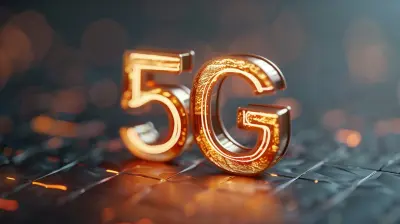
Why 5G is Critical for the Next Era of Connected Devices

Exploring the Latest Innovations in Gaming Mice

How to Overclock Your Gaming Laptop for Maximum Performance

Exploring the Benefits of AI-Powered E-Commerce Chatbots

How Quantum Computing Will Shape the Future of Cloud Computing

Optimizing Your Daily Routine with AI-Powered Digital Assistants
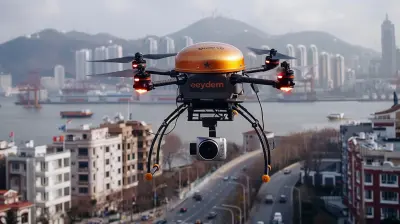
Exploring the Future of Drone Deliveries in E-Commerce

The Art of Refactoring: When and How to Improve Legacy Code

Choosing the Right Screen Size for Your Gaming Laptop
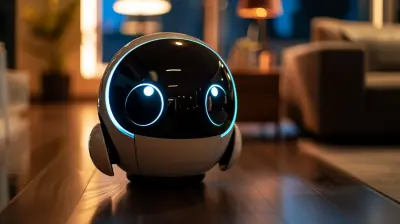
The Role of Digital Assistants in Enhancing Customer Service